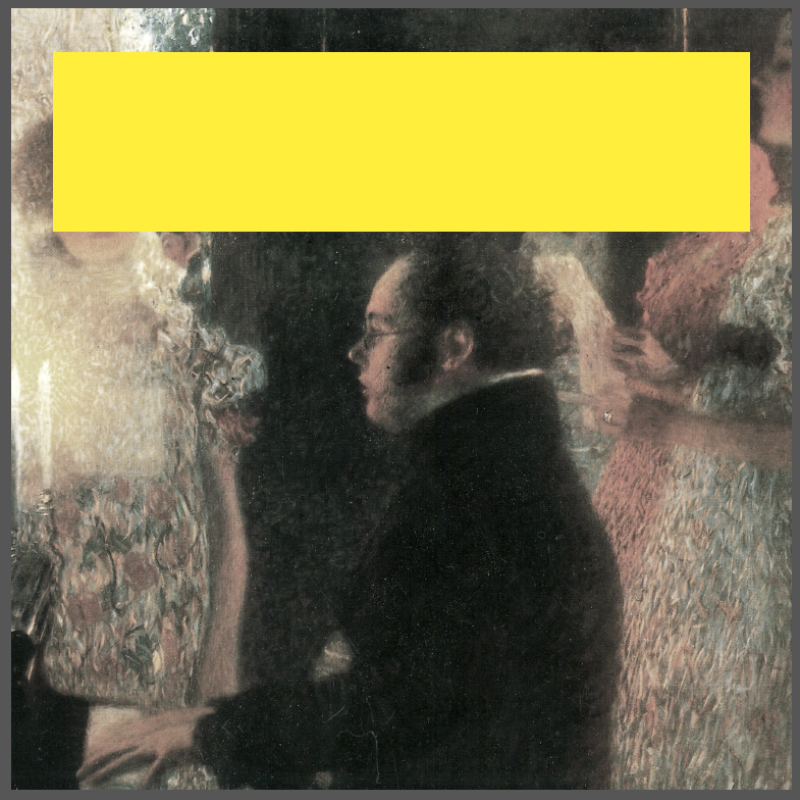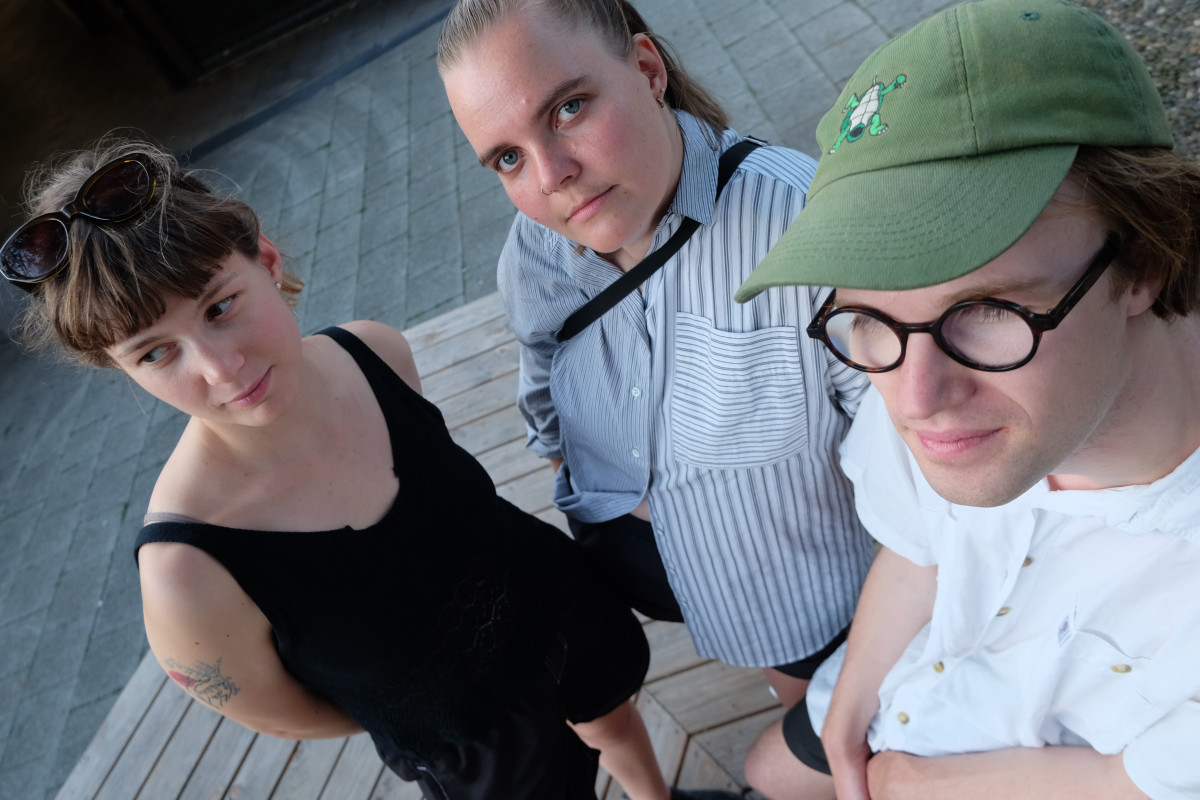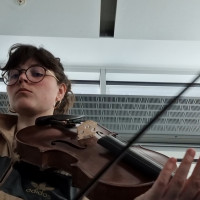
It is always a huge risk to re-interpret classical icons and drag them onto the contemporary scene, especially if you are an award-winning composer and musician of international fame, such as the Norwegian Elvind Buene. Classical music, like all genres, has its small circle of purists and aficionados that are prompt to flag down any attempt to move the statues they adore out of their mausoleums. And this is exactly what Eivind Buene does in his Schubert Lounge album.
The title itself announces an unorthodox approach to the famous German Romantic musical genius: a lounge is not exactly the type of room or architectural installation one would immediately associate with Franz Schubert. But what Buene points to is that Schubert’s music, and more specifically his songs, the famous lieder sung by Kathleen Ferrier and Dietrich Fischer-Dieskau, are about intimacy and that they can be heard today in the half-lit comfort of a lounge, as they were in a salon by candlelight.
There are ten songs on the album, all with their titles in English and without the corresponding German name. For instance, we have »The Sea« and »Beautiful Moon«, which are (very well) known as »Am Meer« and »An Den Mond«. The songs themselves are translated (or adapted) into English, turning the whole project into a singular musical object, which totally deconstructs the traditional prison walls of music history.
Eivind Buene’s voice does not compare with Ferrier’s or Fischer-Dieskau, and it doesn’t even try to. By re-arranging harmonics in modern dissonances and replacing the nuances with a surprising flatness of tone, sometimes switching to delicate higher notes, Buene tells us that classical music is not what we assume it to be: a motionless monument that keeps repeating itself. Turning Schubert into a transnational composer is a radical choice, and a real dangerous one, the risk being to be laughed at, shunned or, even worse, ignored. A Norwegian artist deciding to sing 19th century German lieder translated into English in 2022 is not just an act, it is a radical manifesto. As Buene has written in an article published online, »Music is always now in the sounding moment. Music is, in a sense, a history of unfinished work.«
And this album absolutely proves it.
My name is Martin Longley – would you like to see my playlist?

»Sounds are stretchy!«
Martin Longley squirts ink on music, calibrating its nuisance for too long (over three decades), and is now resting his spent loins amidst the pages of The Brooklyn Rail (New York City), the All About Jazz website (from Philly, where non-hepcat sounds are ever-welcome), plus the luxuriously printed We Jazz magazine (Helsinki). He is eternally on the road, never satisfied with stasis, unless it happens during sonics. He will give up, one day...
Kvæstet svane i den oversvømmede verden

En kvæstet svane ligger begravet i tang i et hjørne af salen, mens fire livløse kroppe er spredt ud på gulvet. Fra loftet hænger mere tang, og lugten rammer os allerede, da vi træder ind gennem et blåligt latexlignende forhæng. Foyeren var fyldt med bunker af tang og restplast, og nu er vi inde i et ukendt undervandslandskab. Det blålige lys flimrer på væggen, lydsiden bruser svagt som en fjern strøm af støj. Vi er under vand.
Langsomt kommer kroppe til live igen. De strækker sig i lidende bevægelser, vakler, kæmper – men de rejser sig. Subtile beats og Mads Emil Nielsens urolige droner skubber sceneriet frem. Spørgsmålet om, hvad der er sket, er retorisk: alt peger på klimakatastrofen. Roskilde Fjord er gået over sine bredder. Menneskene fortsætter – trods undtagelsestilstand, trods oversvømmelse – mens svanen er bukket under.
Dystopien bliver levende, når danserne med imponerende undersøgende bevægelser afsøger måder at tilpasse sig en ny verden på. Her spiller scenografi, lys og dans kraftfuldt sammen, og man mærker, hvordan sanserne overvældes. Netop derfor er det en skam, at lydkvaliteten er mat, når det soniske spiller en rolle i historiefortællingen.
Alligevel lykkes Vi fortsætter… med at skabe et univers, der på én gang er absurd og alt for genkendeligt. Det minder om en mild version af Ruben Östlunds katastrofepos Force Majeure: menneskets komiske og tragiske personlighedstræk sat over for naturens uafvendelige kræfter. Til sidst forlader danserne scenen og lader os tilbage i stilhed – med eftertanken om, hvorfor vi fortsætter sådan, og følelsen af selv at stå og træde vande længe efter, vi har forladt fjordens oversvømmede univers.

På Kaikō – trioen Treens anden udgivelse – demonstrerer saxofonist Amalie Dahl, pianist Gintė Preisaitė og percussionist Jan Philipp både selvsikkerhed, indbyrdes tillid og en tydelig musikalsk eventyrlyst. Åbningsnummeret »Hylē« folder sig ud med klaprende percussion og slag, der synes rettet direkte mod klaverstrengene, stavrende frem over en underliggende drone. Saxofonen bryder ind med fraseringer, der på én gang virker formanende og fortumlede. Intet føles minutiøst kalkuleret; i stedet fremstår musikken båret af en skarp sans for de tre musikeres individuelle stemmer i det fælles lydbillede.
Den samme grundformel foldes ud på albummets tre øvrige numre, men altid i nye variationer. På »Kinetic« træder Dahls saxofon frem med langt større tyngde, og dens langsomt voksende crescendo spejles og udfordres af Preisaitės klaver. Ofte kan improvisationsmusik havne i høflige ventepositioner, hvor musikerne på skift tager ordet – men ikke her. Dahl, Preisaitė og Philipp fremstår som tre drivende øer uden anker, båret af egne strømme, men alligevel uafladeligt trukket i samme retning. Resultatet er både pludselige forskydninger og et organisk flow, der kan opsluge lytteren i en trance, hvis man giver slip og lader lyden skylle ind over sig. Netop tilliden til hinanden gør, at de tre tør spille frit, uden frygt for at forlade eller miste hinanden. Dermed skaber de et momentum, som det er svært ikke at lade sig rive med af – uanset om man vælger at lade de tre øer passere eller selv flyde med i deres strøm.

Rygtet vil vide, at det hedengangne britiske elektroniske band Coil engang lavede et soundtrack til kultgyseren Hellraiser – så urovækkende, at det blev afvist for at være for uhyggeligt. Med den historie i bagagen føltes det næsten som en naturlig åbning til efterårets mørke, da Drew McDowall, tidligere medlem af det mytiske band, onsdag aften indtog scenen på Alice i København. Den skotske musiker er kendt for at indgå i markante samarbejder – blandt andre med danske Puce Mary og senest den amerikansk-svenske komponist Kali Malone – og netop derfor gav det mening, at aftenen blev indledt af en intens koncert med Gintė Preisaitė. Ligesom McDowall evner hun at forvandle selv de mest enkle lyde til altomsluttende lydlandskaber.
Selv om begge musikere har et tydeligt elektronisk afsæt, fremstod deres lyduniverser bemærkelsesværdigt organiske, som om de arbejdede med levende materiale. Preisaitė skabte i sin alt for korte koncert en mosaik af reallyde, stemmefragmenter og kassettebånd – kaotisk det ene øjeblik, ordnet og gennemsigtigt det næste. Med samme kølige præcision førte McDowall sin koncert frem, som var den én lang harmonikadrone, der langsomt sneg sig ind under huden med gyserfilmens uafvendelige logik. Hos McDowall er mørket ikke en fremmed kraft, men en fortrolig ledsager, han kyndigt omskaber til lydlandskaber, der på én gang er urovækkende og trygt omsluttende – som at ligge i en varm seng med mareridtet ved siden af.
Både Preisaitė og McDowall bevægede sig ubesværet på tværs af grænsen mellem det akustiske og det elektroniske. Deres musik fremstod som en nutidig arv fra musique concrète-traditionen: en insisteren på, at elektronisk musik fortsat er blandt de mest eksperimenterende kunstformer – vital, organisk, og med en evne til at lade selv den mindste lyd åbne en hel verden i sig selv.
My name is Nev Lilit – would you like to see my playlist?

»Music is so many things, and arises in so many different forms every day. Music is also an art form, which, like all art, needs to be constantly renewed and deepened in order to be relevant.«
As well as making music as Nev Lilit, Siri Jennefelt works full-time as a composer and sound designer, creating scores for theatre and dance.



